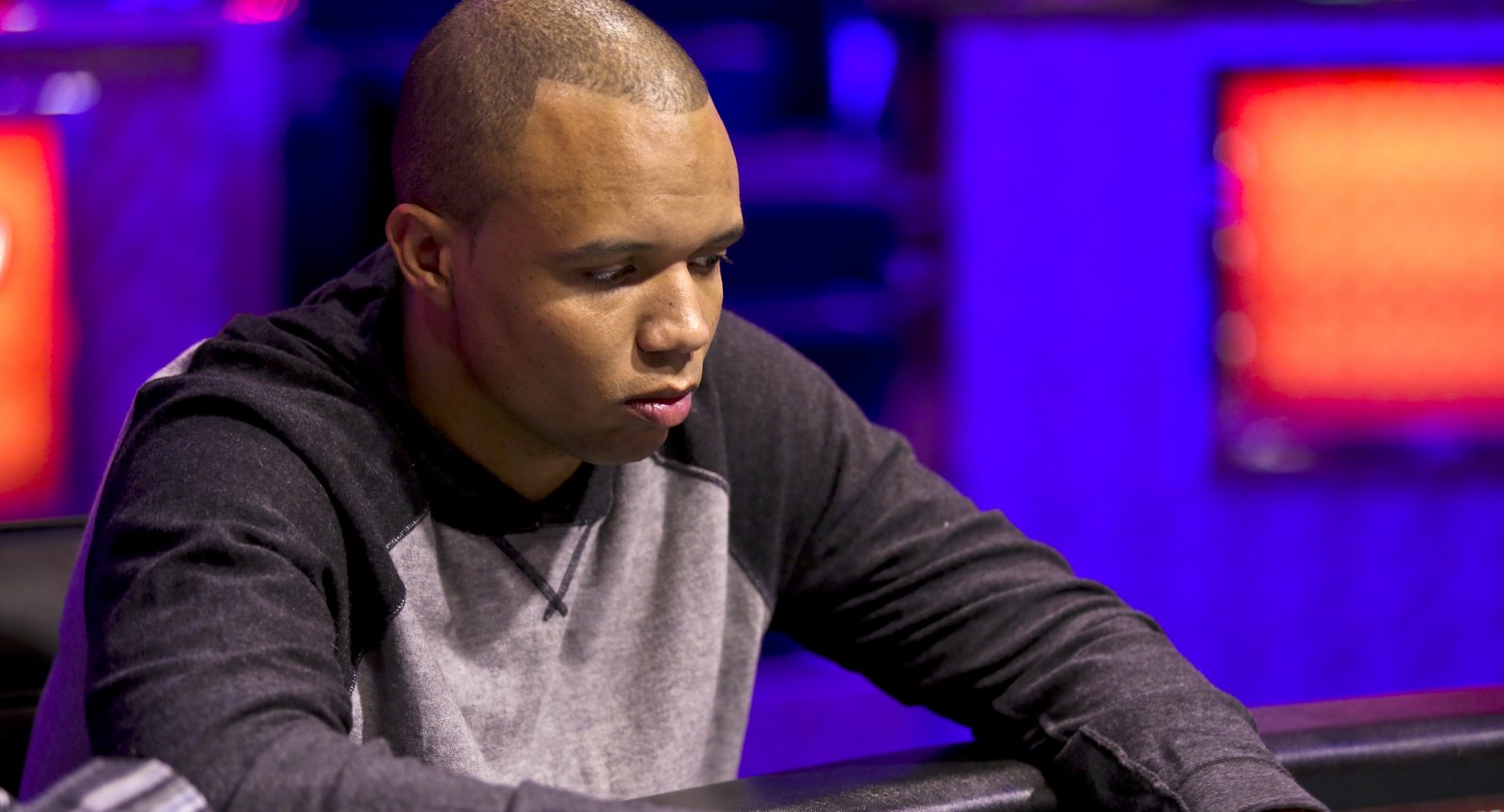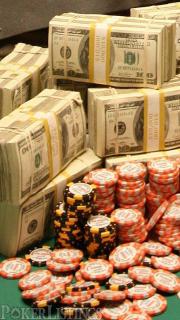The Dunning-Kruger Effect: You’re Not as Good as You Think

-
T&Cs Apply | Play Responsibly | GambleAware
18+ | Play Responsibly | T&C Apply
-
T&Cs Apply | Play Responsibly | GambleAware
T&Cs Apply | Play Responsibly | GambleAware
If you look at the general poker community, where would you rate yourself? Pretty high, right?
Or did you just say in the lower third? Come on. Even if you’re only playing recreationally you must be an above average player, aren’t you?
Of course, that’s possible. Good players have a lot of talent and you can very well be a good player without practicing eight hours every day.
Unfortunately, chances are you’re overestimating your abilities. But don’t worry, most players do. The reason for this is the Dunning-Kruger effect.
What is the Dunning-Kruger Effect?
The two scientists who gave this phenomenon its name described it first in 1999 after conducting an experiment in which the participants had to go through a series of tests checking their general knowledge.
Afterwards they were asked to assess their own performances. Astoundingly, nobody thought they had done badly.
Everybody considered themselves as good or very good – although the top performers actually achieved even better results than they thought.
The self-assessments of people with the worst results, however, were furthest from the truth.
There was a second part to the experiment. The top 25% and the bottom 25% were given the other group’s answers. Having read them they were asked to assess themselves again.
Now something interesting happened:
- The more talented group realized they had performed even better than they thought they did.
Consequently, they rated themselves higher than before.
The bad performers, however, did not show anything similar. Although they now had the better answers of the other group right in front of them they were not able to conclude that they had actually failed the tests.
Instead they kept on rating themselves too high. Apparently, incompetent people don’t realize their incompetence even when they are confronted with competence!
Does that mean, in other words, that the weaker participants couldn’t improve?
No, it’s not that simple. Because, if you educate the subjects – and incompetence is mostly a lack of education – their performances improve.
And this brings us to the most fascinating part of the Dunning-Kruger effect:
- The more the test persons improved, the worse they rated themselves.
It looks like they needed added knowledge to reach the famous Socratic paradox: “I know that I know nothing.”
Related Reading:
Dunning-Kruger at the Poker Table
Think back to the football World Cup for a minute. In dozens of countries, tens of millions of fans wrote billions of comments on the line-ups, strategy, and tactics of their favorite team.
Basically, they were all wrong – mainly because none of them are as qualified for the job as a national coach. Yet, they all thought they knew better.
In poker it’s quite similar. Just look at the most frequented poker forums.
The vast majority of recreational players think they are great and that the reason they lose money is fraud. Bad luck doesn’t even get close to their primary reason.
The alleged fraud takes on different forms. When it comes to online poker the most common accusation is that the software of the provider has been manipulated.
Apparently, many players are under the impression they get beat below their expected value. On the other hand, nobody considers himself to be extraordinarily lucky.
Having read thousands of comments in forums it’s safe to say you never come across somebody who thinks he usually ends up on the “right” side of the doom switch.
From a human perspective, this is completely understandable because if you would admit that, it would also mean you are so bad as a player that the software has to help you out.
From a mathematical point of view, this is obviously a flawed perception of the world.
Related Reading:
Conspiracy Theories Perfect Scapegoat for Bad Players
The idea that an online poker site operator, administering hundreds of thousands of accounts under the watchful eye of government oversight, should be able to control and manipulate every single one of them seems, at the very least, extremely unlikely.
Another common assumption is that players from specific countries get treated favorably by the software. On top of that, these players usually play very erratically.
In European forums, the main target for this accusation are “the Russians.” Maybe it’s a historical thing, but again this is a personal opinion.
Russians, people say, play terrible and then get rewarded by suck-outs all the time while the good players are getting punished – who knows what for.
Remarkably, the “harmed” players are always purely recreational players. They are never regulars who generate lots of rake but rather low stakes players who sit down now and again on the evening or on the weekend and who are, consequently, not the strongest players in the first place.
Basically, it’s exactly the target group of players that the fraudulent poker provider would want to support. If people don’t see the flaw in their argument there, they are victims of the Dunning-Kruger effect.
By the way, if regulars and pros think they are being cheated, there is usually more behind it. The Absolute Poker scandal is probably the most prominent example.
Conspiracy theorists are basically not complaining about other players getting treated favorably, they complain about themselves not being treated favorably.
On a side note, doesn’t it seem quite natural that players from countries with large populations win more often than those from small countries?
Russian players won the most WCOOP events this year but there is nothing suspicious about that as they only won one more than players from Canada, despite their population being five times larger.
The reason is, of course, that there is a significant amount of American pros who went north to be able to play.
A Personal Story
One night, I sat down at an 8-game table online. Only in the second hand – we were playing PLO – I managed to hit a full house on the river and stacked my opponent, who had been in front on the turn with a flush and bet big.
Poker mathematicians would say – and I know they are correct – that the odds were against me. I should have given up my hand and I clearly got lucky.
I sucked out. But that isn’t even the point.
Because after this hand, for the whole 90 minutes I played that night, my opponent, who was obviously also intoxicated, kept swearing at me obscenely through the chat box.
He also accused me of cheating and he claimed to take notes on my play so he could report me to customer support.
He then proceeded to only play top hands and get the maximum when he had it. But he also liked to call off a lot when I had it, just to prove I was bluffing – which I wasn’t.
He got so angry and frustrated that he lost control over his game. I’ve never had a session where winning was so easy as that night. At the same time, with every hand lost, he felt vindicated he was getting cheated.
If you lose your temper completely just because of one bad beat, you also lose contact with reality.
Tilt and How to Deal With It
But let’s leave aside the frustration of those who are unwilling or unable to learn. Their attitude is unlikely to change because they think they know better.
As we know, conspiracy theories work so well because every argument against it also works in favor of it.
For conspiracy theorists, counter arguments only prove how well the conspiracy in question has been organized. And he is the only one who is able to look through them.
So let’s take a look at frustration that is real. It develops by the principle mentioned early in this article: The better we get at something, the more we understand how far ahead others really are. It’s pretty depressing.
If you’ve only just started to work yourself into poker, you are probably fascinated by what you see on TV. Partly because you only understand half of it.
The more shows you watch and the more practice you get, the more you’ll understand and the more you’ll recognize the differences in quality.
Of course, broadcasts of the WSOP Main Event will always be entertaining, as the level of play is often understandable and comparable to our own. Also, most of the players seem to have a lot of fun.
With high-stakes cash games it’s a completely different thing. The advanced recreational player watches and understands that some pros are playing the game on a completely different level and that they are going through trains of thoughts we wouldn’t be able to think up.
Sometimes they are so complex that we can’t even follow them. Often, so-called “hero calls” with king high or mucked full houses are everything but lightheaded decisions.
These are the moments where we sit in front of our monitors, shake our heads and wonder what’s going on. Frustration is the result of this and, sooner or later, everybody who realizes they will never reach that level, will ask themselves if they should quit playing poker altogether.
Related Reading:
- Solving Poker Tilt: Everyone Gets It, Few Can Fix It
- Poker Tips from Pros: Calvin Anderson Explains Proper Poker Thinking
The Game is the Reward
But don’t panic. The solution isn’t that complicated. If you’ve collected some experience in the game you know that players play differently in a $1 online tournament than in a $10 tournament. And they play differently again in a $50 tournament.
This also applies to cash games. Exceptions confirm the rule.
So, don’t believe in what you hear on TV when players say, “you have to play the best to be good” or something to that effect.
Don’t play the best. Play the worst, play the whiners, play the conspiracy theorists, play the victims of the Dunning-Kruger effect.
That’s where your best chances lie. And it’s not a coincidence that you find regulars and team pros in almost every $10 online MTT.
Related Reading:
We Play Because We Enjoy It
Also, don’t believe in that nonsense that the only reason to play poker is to win money. Poker is our hobby, not our job, for crying out loud!
We play because we enjoy it. If you play football as a hobby you wouldn’t quit because you lost three matches in a row.
I can say from experience that you can easily lose track of counting the goals during a friendly evening football match.
All hobbies cost money. Why shouldn’t poker?
The special thing about poker is that you have the added chance to win money. The chance … not the right to.
Related Poker Strategy Articles
-
Stake.US Poker4.3
- Rakeback 5%
- $55 Stake Cash + 260K Gold Coins
T&Cs Apply | Play Responsibly | GambleAware
18+ | Play Responsibly | T&C Apply
-
Appeak Poker4.1
- 1,000 Chips Daily
- FREE 5,000 Chips
T&Cs Apply | Play Responsibly | GambleAware
T&Cs Apply | Play Responsibly | GambleAware
-
- 150% up to 25 SC
T&Cs Apply | Play Responsibly | GambleAware
Terms & Conditions apply
-
- 5%
- 200% Gold on 1st Purchase
T&Cs Apply | Play Responsibly | GambleAware
Terms & Conditions apply
-
- 2,500 Gold Coins + 0.50 Sweeps Coins
T&Cs Apply | Play Responsibly | GambleAware
18+ | Play Responsibly | T&C Apply








